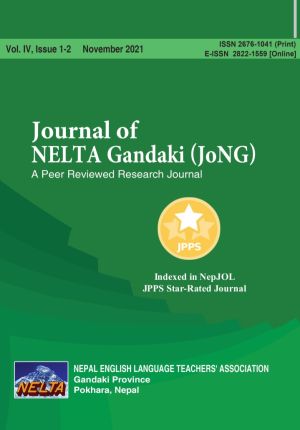The Paradigmatic Shift of Knowledge in the Mundaka Upanishad
DOI:
https://doi.org/10.3126/jong.v4i1-2.42643Keywords:
apara, atman, brahman, para, vedanta, yogaAbstract
This article explores the dynamics of the esoteric (para) and exoteric (apara) knowledge that the Mundaka Upanishad proclaims in its mantras. The domain of Vedic knowledge is exoteric, and the Vedic sacrificial rituals are always for earthly glories and satisfactions. Therefore, their main quests always remain for the external manifestations. Unlike this, the Vedanta refers to the philosophical part of Veda. It mainly concerns for cosmic speculations, and aims to realize the transcendental ultimate reality. In this way, the Upanishads which form one of the tripartite pillars of Vedanta postulates that the absolute reality pervades within us and outside in the real world. Their speculations are to realize the ultimate reality that rules the entire cosmic manifestations. Therefore, the Upanishadic knowledge is esoteric (para vidhya). This great dichotomy between the exoteric and esoteric makes a clear shift of knowledge from the Vedic outwardness to Vedantic inwardness. In this context, it is the Mundaka Upanishad that is the pioneer to make a canonical shift of knowledge from Vedic apara to the Vedanta’s para. This article makes an exploratory and descriptive analysis of the theories and ideas developed in the Mundaka Upanishad that reveal how it makes a clear canonical shift of knowledge from the Veda to Vedanta. It equally sheds light on the implications of the theories and ideas of para and apara knowledge in teaching and modern pedagogy.
Downloads
Downloads
Published
How to Cite
Issue
Section
License
This license allows reusers to distribute, remix, adapt, and build upon the material in any medium or format for noncommercial purposes only, and only so long as attribution is given to the creator.




